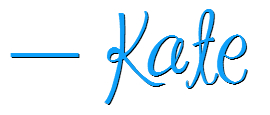 Title: Birdsong
Title: BirdsongAuthor: Sebastian Faulks
Publication Date: 1993
Genre: Historical Fiction, Romance
Rating: 1/5
Borrow | Buy
I started reading Birdsong on a night I couldn't fall asleep. I'd been going through A.S. Byatt's Possession and for whatever reason(s) I just didn't want to keep going. It had been awhile since I'd read anything like historical fiction even though it's a genre of which I'm quite fond.
Since I was using my e-reader at the time, I decided to go through all of the historical fiction sections they had on offer. I'd not thought of WWI fiction at all. I am a huge fan (which sounds incredibly inappropriate considering the ocean of human suffering) of WWI-era poetry. I even designed a lesson plan for my DH to use in his history courses comparing or contrasting Rupert Brooke's "The Soldier" to Wilfred Owen's "Dulce et Decorum Est". And as a Tolkien fan, I often contemplate the effects of war upon his writing.
So, as I read the opening chapter (free preview of some 45 pages) and compared it to some other WWI historical novels I thought it grabbed me the most. Armed with a gift-card I'd found (gotta love "free" $30) I charged ahead.
And, the beginning of the book was splendid. It was delicate but mysterious. The characters were a interesting but slippery, it was a delicious misunderstanding of their motives and interests. But before long, instead of gently revealing a character's makings and emotions everything becomes rough and feels unformulated, maybe even rushed. The writing is less elegant, the characters seem either ham-fisted and/or amoral.A sex scene is admittedly rather exciting but it seems like something out of Sex and the City than a erotic moment.
The female characters are flat and almost seem like caricatures of actual women. As if Faulks is trying to make a comment on patriarchy but also just wants to write about breasts. The plot is split into three separate time streams and he artlessly goes back and forth. One character is, I suppose, intended to describe the separation of "normal" lives and war lives but that seems like a hell of stretch.
When I finished this book I glanced at its reviews on Good Reads and was surprised to see how many 4-5 star ratings it received. A lot of people were taken with it and found it to be engaging. He writes the trench scenes rather well, I will grant him. They are jarring and claustrophobic (the whole novel is claustrophobic and not in a clever, thematic way) but a novel set in trenches will be, it's no great talent. And by the very end of Stephen's (main "hero") experiences in the war he has unintentionally befriended a German as they realize that they were fighting the idea of a foe instead of legitimately hating another human. I suppose this would be surprising to anyone unfamiliar with WWI writers or survivors (not that this juxtaposition is singular to just that war.) The only poor review in sight concluded with a reference to Wilfred Owen. I had to respond in agreement that a reading of "Strange Meeting" was a far more emotional, beautifully written, and enticing choice than this novel.
I tried to watch the BBC made-for-television dramatization and couldn't bear it. The characters are so distasteful that I couldn't spend more than 20 minutes.


No comments:
Post a Comment